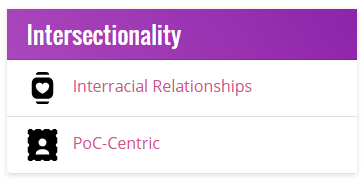Since we announced scores back in October, we’ve slowly been improving show scoring and how it works.
As the daughter of a mathematician, I take any sort of quantitative generation of statistics with seriousness. Unlike the simple mathematical computation of, for example, a trend line formula of queer deaths over the years, measuring the subjective notion of quality requires making what is known as a framework. The more complex these notions of value, regardless of how intuitive they feel, must be tailored not just to the data on hand, but the application.
In other words, in order to make show scoring valuable, we had to determine what sort of results we expected and desired. It’s just like making a pros and cons list to decide which action to take, or like those dating websites use to generate your match scores.
Over the last 8 months, I’ve spent considerable time reviewing the show scores and tweaking the values in order to make sure shows that are doing well and doing good things are properly rewarded. In that process, we are pleased to introduce the latest factor to go into the value calculations of shows: Intersectionality
What is Intersectionality?
Intersectionality is a way to understand and identify how people from different walks of life, based on factors like race, gender, age, disability, and so on, are impacted in unique ways. No two people perceive the world in the same way, but moreover, no two types of people experience the world in the same way. By studying intersectionality, we can better see how the world affects us, based on what makes us unique. The belief is these things do not exist separately from each other, and instead are complexly interwoven.
Unlike pure feminism, intersectionality tries to correct dynamics that were often overlooked. For example, we cannot say gender alone determines a woman’s fate in society, but also her sexual identity, age, religion, etc.
Here, we attempt to use it to celebrate the positive intersectional representation demonstrated on some shows. For example, if a show is made up primarily of black characters, we would award it the intersectional flag of “PoC Centric.”
How Does it Factor into Scores?
Unlike most other aspects of scores, like tropes and clichés, intersectionality is rare. It’s also much harder to retain. A Gold Star show (that is a show made by queers, intended for a queer audience) will never be able to lose that flag. But if a show having positive representation of a Deaf queer character kills off that character, then they would lose the “Disability” intersectionality flag.
Because of that, a positive intersectionality flag gives a show a bonus of 3 points for each flag, with a maximum of 15 points.
How Many Intersections are there?
Currently we have seven.
- Disabilities
- Gender Presentation
- Immigrants
- Interracial Relationships
- Diverse Cast
- PoC Centric
- Religion
We’re still adding shows in to this, and our bar for acceptance is high. A show can’t just have a token religious character to qualify, it has to have positive religious representation of the queer character.

What Kind of Shows Have This?
There are some that are fairly obvious. One Day at a Time and Black Lightning both have the marker “POC Centric” as their casts are primarily made of POC, and the queer characters are also POC. Degrassi: Next Class, a show that directly aims towards the topical, covers Religion, Interracial Relationships, Multiracial queer characters, and Immigrants.
On the other hand, Grey’s Anatomy does not get rewarded for Disability (i.e. Arizona) because we did not feel this was a realistic and positive representation of a queer person with a disability.
What’s Next?
We’re going back through all the shows and making sure each show has the appropriate (if any) Intersectionality flags awarded.
This is just one way we’re making it easier for you to find the shows you want to watch on TV.
